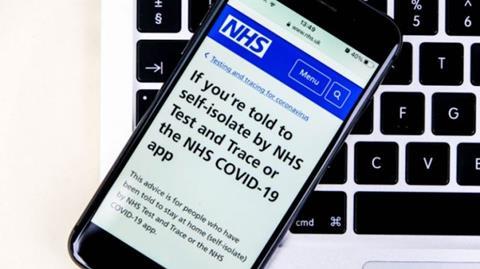
The government has warned operators that exemptions to current Covid-19 self-isolation rules will only be for "very limited" exceptional circumstances, assessed on a case-by-case basis.
The announcement comes in the wake of new guidelines allowing supermarket depot workers and food manufacturers exemption from quarantine rules as the government tries to ease problems in the food supply chain.
But despite the government allowing retail workers, regardless of vaccination status, to do daily Covid testing instead of isolating, transport firms will still have to go through a complex process involving a formal application to the DfT.
In a statement released last night (22 July) the DfT said: “As you may be aware, the Prime Minister recently announced that a limited number of fully vaccinated workers in critical roles, who have been identified as contacts of a positive case, may be permitted to continue to attend work as long as they are double vaccinated (with the final dose 14 days prior), do not have symptoms, and have tested negative via both a PCR, and daily lateral flow (LFD) tests.
"This is a short-term measure before the exemption from self-isolation for fully vaccinated contacts is introduced on 16 August, and is only intended for exceptional circumstances, where there would be a major detrimental impact on essential services or critical national infrastructure, if staff could not attend work."
Read more
It advised operators to make applications “only for very limited exceptional cases", adding that all requests will be "subject to the appropriate level of scrutiny" and that the process is “not designed to mitigate acute shortages of lorry drivers”.
Responding to the latest developments, an RHA spokesman said: "Fully vaccinated truckers can be exempt, but there’s a long-winded process firms have to go through to make it happen. The government is sticking to the line that it must be for exceptional circumstances. We continue to call for exemptions for fully vaccinated staff who test negative to be allowed to work. This falls considerably short of that.”
In a separate 'Test and Trace statement', the government said that in a small number of situations where the self-isolation of close contacts would result in serious disruption to critical services, a limited number of named workers may be able to leave self-isolation under specific controls for the purpose of undertaking critical work only.
But this policy only applies if a worker's employer has received a letter from a government department on which a specific name is listed.
Responding, a Logistics UK spokeswoman said: "Some but not all HGV / delivery drivers come under 'critical services'. Each case will be assessed on its own merits and businesses will have to apply to be made exempt, but we are not sure at this point how long that will take.
"We are still waiting for details on the exact method of how the scheme will work, and the timescales involved but we are making sure that it is simple to administer – that’s vital as the sector is so stretched by the impact of the pandemic and the lack of HGV drivers."










